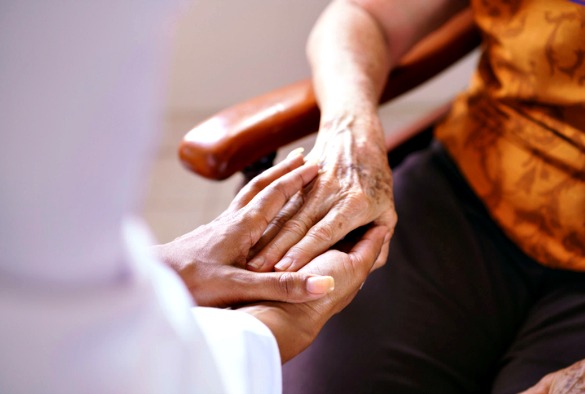Researchers from the University of Liverpool will take the lead on one of 11 new national networks aimed at transforming ageing research in the UK, funded with £2 million from the Biotechnology and Biological Sciences Research Council (BBSRC) and the Medical Research Council (MRC).
Previous reviews of how to boost ageing research in the UK have found research efforts to be fragmented, focusing on single aspects of ageing. Now these networks aim to provide researchers with strong interdisciplinary platforms to integrate expertise and knowledge across disciplines to deliver a better understanding of the biological mechanisms of ageing and how to increase healthy lifespan and quality of life in old age.
The networks also aim to increase collaboration with stakeholders – including working with the public, industry, charities, policymakers and health practitioners – to translate findings into policy, public health and new therapies.
Learning more about age-related diseases
Dr Elizabeth Laird from the University of Liverpool’s Institute of Life Course and Medical Sciences will take the lead on the ‘Extracellular matrix ageing across the life course interdisciplinary research network (ECMage)’.
Extracellular matrix (ECM) is the main structural component of tissues and organs and is made of a three-dimensional network of molecules. It can be structural (for example in the bone it is mineralised, or in the lung it provides elasticity) but is also dynamic, controlling key cellular signals and responding to external factors such as light-dark cycles. ECM deterioration leads to abnormal communication between cells and loss of vital functions, which contributes to many age-related diseases.
The network will bring together biologists, chemists, geneticists, ageing scientists, engineers, mathematicians, clinicians, health and social scientists from the University of Liverpool, University of Glasgow, University of Nottingham, The University of Manchester and Newcastle University to develop models to study ECM ageing.
Dr Laird, said: “Extracellular matrix (ECM) is fundamental in providing structural resilience to our bodies whilst responding to and controlling how cells behave. Our network aims to develop models to study ECM ageing, test ways to counteract age-related changes and promote ECM regeneration. This network has the potential to inform fundamental interventions for a wide range of serious age-related diseases to improve health-span and quality of life.”
Transforming health in later years
Professor Richard Faragher, Ageing Networks Macro Coordinator, said: “We are at the cusp of scientific developments that will transform health in later years. By being able to keep millions of older people healthy and out of hospital, we can hugely reduce costs and pressures on the NHS and GPs. Be in no doubt. A race is now on, and the countries and companies that can capitalise on the biology of ageing will dominate 21st century healthcare.”
Professor Melanie Welham, Executive Chair of the Biotechnology and Biological Sciences Research Council, said: “At the heart of improved health and wellbeing is a deep, integrated understanding of the fundamental mechanisms that contribute to maintaining health across the full life course. An understanding that is underpinned by collaboration, partnerships and shared knowledge. By funding the Ageing Networks, we’re not only addressing a major societal challenge – we’re also stimulating multidisciplinary research and innovation, with the potential for some really exciting breakthroughs.”
Professor John Iredale, interim Executive Chair of Medical Research Council, said: “How to keep people healthier as they live longer is one of the biggest challenges facing 21st century medicine and our society. To make greater progress we need to transform how we conduct ageing research – both by bringing together scientists from many disciplines with the public, clinicians, policymakers and industry. The new networks we’re funding will build UK-wide collaborations to better understand the fundamentals of ageing, paving the way towards the development of novel interventions to prevent, halt or reverse aberrant ageing.”
Researchers from the University are also involved in three of the other networks; Food for added life years: Putting research into action (Food4Years); An interdisciplinary ageing alliance: cellular metabolism over a life-course in socioeconomic disadvantaged populations (CELLO); and Skin microbiome in healthy ageing (SMiHA).
More information on all of the networks can be found here.
